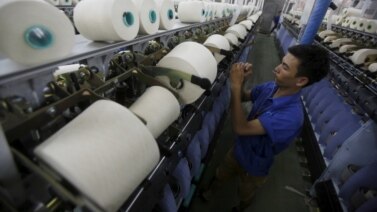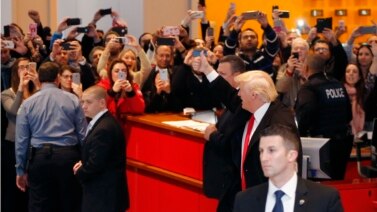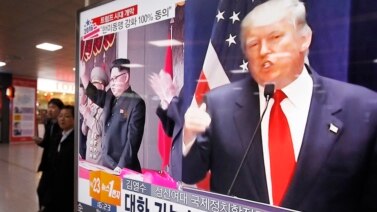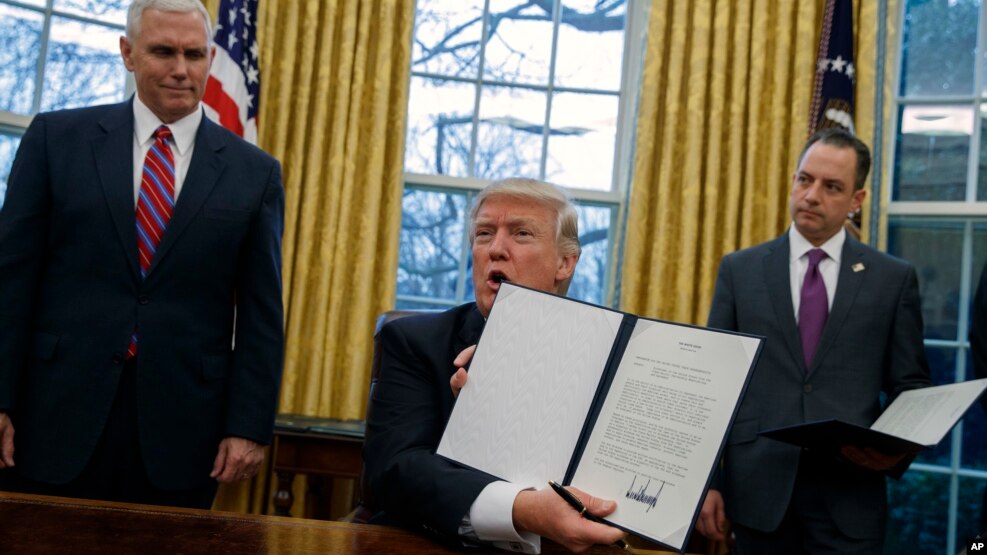
President Donald Trump officially withdrew the United States from the Trans-Pacific Partnership (TPP) trade deal on Monday.
The move was expected. Even before he announced his candidacy for president 18 months ago, Trump said the trade deal was bad for American workers.
The president signed an anti-TPP executive order at the White House, as reporters watched.
"We've been talking about this for a long time,” Trump said. “A great thing for the American worker, what we just did."
During his campaign for the presidency, Trump said some trade deals with other countries cost America jobs. He said they lead employers to move operations outside the United States to save on labor costs.
Obama administration negotiated TPP
The United States negotiated the TPP during the administration of former President Barack Obama. But the U.S. Congress never approved the trade deal.
The agreement would have lowered tariffs on trade involving the U.S. and 11 other countries, including Australia, Brunei, Canada, Chile and Japan. The others are Malaysia, Mexico, New Zealand, Peru, Singapore and Vietnam.
The TPP would have been the biggest trade deal in history, covering nearly 40 percent of the world economy. China did not take part in the negotiations. But it appears ready to sign its own trade deals with Southeast Asian countries that would have been part of the TPP.
Former President Obama said the trade agreement would be good for the United States. Without a deal, he said, China would write the rules for the global economy.
Last Friday, Trump was sworn-in as president. He was elected last November after defeating former Secretary of State Hillary Clinton. Both she and Obama are members of the Democratic Party. Trump was the Republican presidential candidate.
After being sworn-in, Trump said his administration would work to put “America First,” signaling a move to more isolationist policies.
TPP would have cut more than 18,000 tariffs, including taxes on all goods made in the U.S. and almost all American farm products. The deal sought to end child labor abuses and set better conditions for workers on pay, hours of work and safety and health.
At the start of talks with business leaders on Monday, Trump said he would reduce government rules on businesses by 75 percent or more. And he said the U.S. government would be streamlined. By streamlined, he meant there would be fewer government workers.
“The regulations are going to be cut massively and the taxes way down," he said.
But he also warned the business leaders not to move operations to other countries. He said businesses would pay a heavy price if they make products in other countries, and then try to sell them in the United States.
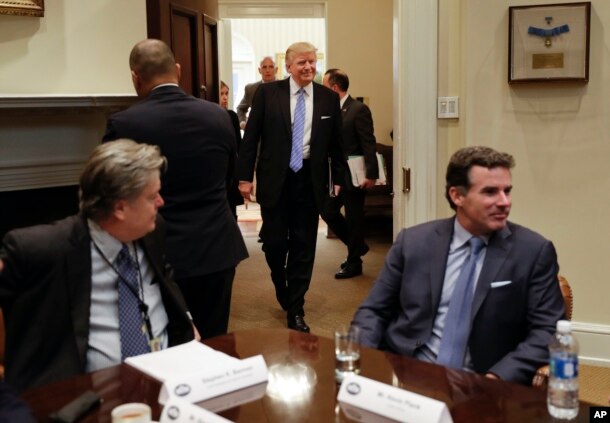
The new president said he also wants to change the terms of the 1994 North American Free Trade Agreement (NAFTA) with Mexico and Canada.
On Sunday, Trump announced he will discuss NAFTA, immigration and border security when he meets with Mexican President Enrique Pena Nieto at the end of January. The Trump administration said he also plans to meet soon with Canadian Prime Minister Justin Trudeau.
"I think we're going to have a very good result for Mexico, for the United States, and for everyone involved," Trump said.
Japan approved TPP Friday
Last week, Japan's Parliament approved the TPP. But Japanese Prime Minister Shinzo Abe said that without the United States, the trade deal would become “meaningless.”
Japanese stock prices fell on Monday. Market watchers said it showed investors' reaction to Trump's “America First” speech and the U.S. rejection of the TPP.
South Korea is not part of the TPP, but has a free trade agreement with the United States.
Some American companies noted that South Korea tries to get around the agreement by putting strong non-tariff rules on U.S. imports.
On Monday, South Korea's Acting President and Prime Minister Hwang Kyo-ahn said the South Korean government has been in contact with the Trump administration. He said the government told Trump officials that it has lived up to the trade agreement.
Also on Monday, Trump signed executive orders suspending the employment of new federal workers, except for the military. His spokesman said the only exception would be workers in national or public security positions.
Another order banned U.S. non-governmental organizations that receive federal money from providing abortions outside the United States. The organizations had received government funding during the Obama presidency.
Ken Bredemeier and Brian Padden reported on this story for VOANews.com. Bruce Alpert adapted the reports for Learning English. George Grow was the editor.
We want to hear from you. Write to us in the Comments Section and share your views on our Facebook page.
Words in This Story
tariff - n. a tax on goods coming into or leaving a country
isolationist - adj. a policy of not working so much with other countries
massively - adv. very large
complain - v. to express unhappiness with something
abortion - n. a medical procedure used to end a pregnancy and cause the death of the fetus
